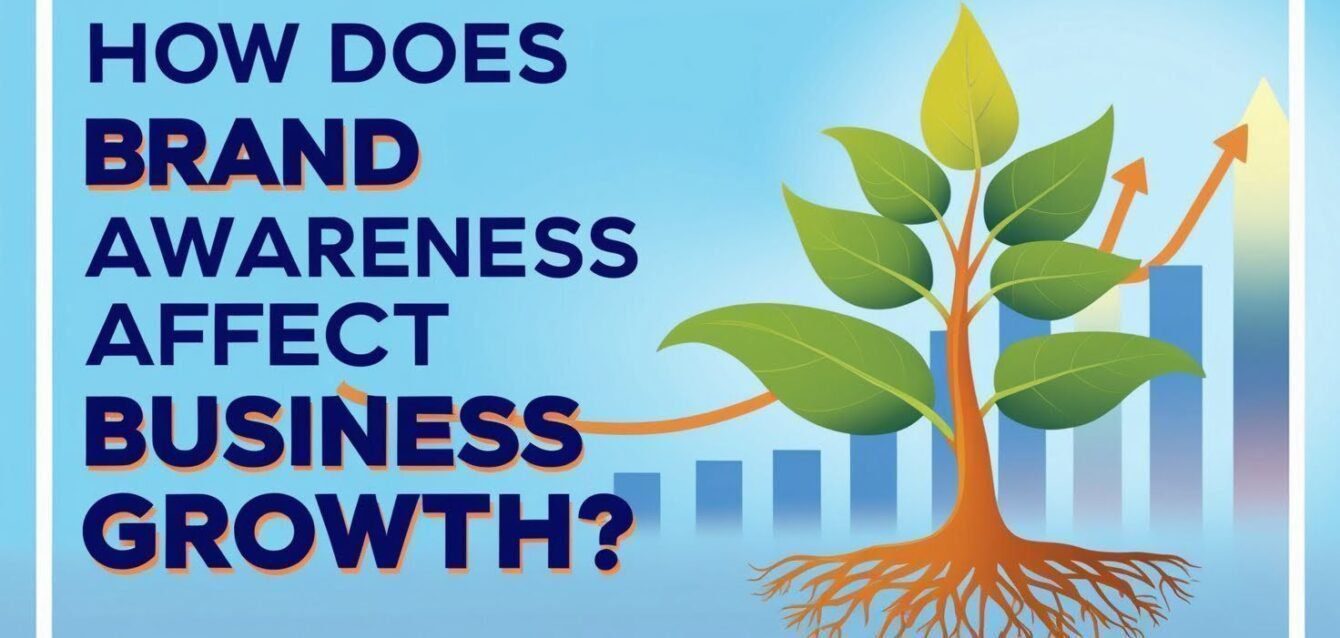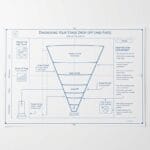Introduction to Brand Awareness
Brand awareness represents a fundamental aspect of marketing, encompassing how familiar and recognizable your brand is to consumers. It extends beyond mere recognition—it’s a measure of how well customers can differentiate your brand from its competitors and recall it when making purchasing decisions. Essentially, brand awareness defines the breadth of your brand’s presence in the market and its ability to linger in the minds of consumers.
The cornerstone of building a successful brand revolves around creating a strong connection with your audience. This connection ensures that your brand is not only recognized but also stands out amid the vast sea of competitors. By establishing robust brand awareness, businesses can cultivate trust and loyalty among their target customers. When potential buyers are faced with numerous options, a brand they are familiar with and trust will likely be their first choice.
Moreover, high brand awareness directly impacts consumer behavior. A well-recognized brand can more efficiently drive purchasing decisions, as customers are more inclined to choose products or services from brands they know and trust. It’s not just about occasional visibility; frequent, positive interactions build a lasting impression and often translate into long-term loyalty. Essentially, brand awareness can lead to a steady stream of repeat customers and even advocates who can amplify the brand’s reach through word-of-mouth.
In the competitive marketplace, local SEO strategies are crucial in enhancing brand awareness. By optimizing for local search, businesses can become more visible to nearby potential customers, thus embedding their brand in the local community. This visibility reinforces the brand’s presence and boosts recall during local purchasing decisions. Ultimately, investing in strategies that enhance brand awareness is indispensable for long-term business growth, impacting everything from customer acquisition to market share.
The Connection Between Brand Awareness and Business Growth
Brand awareness serves as a crucial cornerstone for business growth. It fundamentally affects a company’s ability to attract and retain customers, subsequently driving sales and enhancing market share. When consumers recognize a brand, they’re more likely to purchase its products or services over those of lesser-known competitors. This recognition translates into increased sales volumes and, ultimately, elevated revenue streams.
Research consistently demonstrates the impact of brand awareness on business performance. According to a study by Nielsen, 59% of consumers prefer to buy new products from brands familiar to them. This statistic underscores the direct link between brand awareness and customer purchasing behavior, indicating that businesses with higher visibility in the market can experience significant sales growth.
Moreover, heightened brand awareness contributes to expanded market share. A widely recognized brand typically enjoys a competitive edge, allowing it to capture a larger segment of the market. For instance, a case study involving Coca-Cola revealed that the company’s global brand recognition began with aggressive local SEO strategies, social media presence, and unforgettable marketing campaigns. As a result, Coca-Cola managed to sustain its dominance in the beverage industry, maintaining a substantial market share.
Another critical benefit of strong brand awareness is the fostering of customer loyalty. When consumers repeatedly encounter a brand, they begin to develop trust and emotional connections, promoting long-term customer relationships. A survey by HubSpot found that 82% of consumers are more likely to continue buying from a brand they trust and recognize. This loyalty not only ensures repeat sales but also encourages word-of-mouth marketing, further amplifying the brand’s reach and reputation.
In essence, brand awareness is not merely about making a brand noticeable; it’s about embedding it into the consumer’s daily life. The interplay of increased sales, expanded market share, and enhanced customer loyalty fuels sustainable business growth, enabling companies to thrive in competitive markets. As shown by empirical evidence and real-world examples, brand awareness is indisputably intrinsic to business success.
Strategies to Enhance Brand Awareness
Elevating brand awareness is integral to driving business growth. Employing a multi-faceted approach ensures a comprehensive reach and solidifies the brand’s presence in the market. One such strategy is content marketing. Providing valuable, informative, and engaging content helps establish authority in the industry. Businesses can utilize blogs, videos, infographics, and e-books to educate customers about their products and services. Leveraging search engine optimization (SEO) principles further enhances the visibility of this content, making it easier for prospective clients to find it.
Another crucial strategy is social media engagement. Platforms like Facebook, Twitter, Instagram, and LinkedIn offer unique opportunities to interact directly with the audience. Regular posting of relevant content, responding to comments, and engaging in conversations can significantly boost brand awareness. Social media algorithms often reward active accounts, increasing the likelihood of content being seen by a wider audience.
Influencer partnerships also play a pivotal role in expanding a brand’s reach. Collaborating with influencers who resonate with the target audience can lead to credible endorsements. These partnerships can drive traffic towards the brand and create a buzz within the community. It’s essential to choose influencers whose values align with the brand to ensure authenticity and maintain trust among followers.
Effective public relations strategies can also enhance brand awareness. Press releases, media coverage, and public events promote the brand’s image and increase visibility. Establishing relationships with journalists and media outlets can result in features that reach a broader audience, thereby fostering recognition and trust.
Consistency and repetition are fundamental in maintaining and amplifying brand awareness. Consistent branding across all platforms—whether it’s the website, social media, or print media—ensures that the brand is easily recognizable. Repeated exposure to the brand’s message helps ingrain it in the audience’s mind, making it more memorable and trustworthy.
In summary, a balanced combination of content marketing, social media engagement, influencer partnerships, and public relations, reinforced by consistent branding and message repetition, serves as a robust strategy for enhancing brand awareness and driving business growth.
The Role of Digital Marketing in Building Brand Awareness
Digital marketing serves as a cornerstone in building and enhancing brand awareness. This multifaceted approach incorporates various strategies like search engine optimization (SEO), pay-per-click (PPC) ads, social media campaigns, and email marketing. Each of these tactics plays a unique role in establishing a brand’s presence in the digital landscape.
SEO is a foundational element that improves a website’s visibility on search engines like Google. By optimizing content and utilizing keywords effectively, businesses can appear higher in search results, thereby increasing organic traffic and brand recognition. Local SEO, in particular, helps small businesses target specific geographic areas, ensuring that potential customers in the vicinity can easily find them. For instance, a local bakery optimizing for “best bakery in [city name]” can significantly improve its foot traffic and online engagement.
Conversely, PPC advertising offers an immediate impact by placing ads at the top of search engine result pages or on social media platforms. This not only drives targeted traffic but also increases brand visibility among a specific audience segment. Companies like Amazon use PPC ads extensively to maintain their market dominance and sustain high levels of brand awareness.
Social media campaigns are another vital component, leveraging platforms like Facebook, Twitter, and Instagram to engage with a wider audience. Successful campaigns can go viral, exponentially increasing a brand’s reach and engagement. For example, Dove’s “Real Beauty” campaign utilized social media to challenge societal norms and create a powerful, positive brand image, resonating with millions globally.
Email marketing remains an invaluable tool for nurturing existing customer relationships while also attracting new ones. Personalized email campaigns can provide valuable content, exclusive offers, and updates, keeping the brand top-of-mind. Brands like Airbnb have successfully used data-driven email marketing to boost their customer retention rates and foster long-term brand loyalty.
In essence, digital marketing integrates various strategies to elevate brand awareness, offering businesses a robust framework to connect with their audience, maintain a competitive edge, and drive growth.
How Macro Webber Can Help in Brand Awareness
Macro Webber is distinguished in the realm of enhancing brand awareness, offering an array of services meticulously designed to elevate a business’s presence both locally and globally. Central to Macro Webber’s approach is a comprehensive suite of tools and strategies that are customized to meet the unique needs of each client.
One of the fundamental pillars of Macro Webber’s offerings is digital marketing. Through targeted campaigns, they ensure that a brand’s message reaches its intended audience effectively. From Pay-Per-Click (PPC) advertising to content marketing, their efforts are crafted to resonate and cultivate a lasting impression.
Local SEO holds significant importance in their strategy for bolstering brand visibility, especially for businesses targeting specific geographical areas. By optimizing local listings, improving on-site SEO, and employing location-based keywords, Macro Webber ensures that businesses appear prominently in local search results. This enhances the brand’s reach among local consumers, driving traffic and engagement significantly.
Further, Macro Webber excels in social media management. Recognizing the power of social platforms in today’s digital age, they develop and execute strategies that foster brand engagement, build a loyal following, and amplify brand recognition. Through careful analysis and creative content, Macro Webber helps businesses leverage social media to create a compelling brand narrative.
A standout feature of Macro Webber is their use of advanced analytics and data-driven strategies. Their tailored solutions are not based on generic approaches but are crafted from specific insights gained through thorough market research and performance metrics. This ensures that each campaign is precisely tuned for maximum efficacy.
Macro Webber’s proficiency is evidenced by numerous case studies wherein they have significantly improved brand awareness for their clients. These documented successes include notable increases in web traffic, higher search engine rankings, and enhanced social media engagement.
In addition to the above-mentioned services, they also provide holistic consultations that cover all aspects of brand development and visibility, ensuring that clients receive well-rounded support for their brand growth initiatives. With Macro Webber, businesses gain a strategic partner dedicated to turning their brand into a well-recognized entity within their industry.
Measuring the Impact of Brand Awareness on Business Growth
Brand awareness plays a pivotal role in driving business growth, but its impact isn’t always immediately clear. To effectively gauge the success of brand awareness initiatives, businesses must employ various metrics and tools. By leveraging key performance indicators (KPIs), companies can gain valuable insights into how well their brand is resonating with the audience and influencing market dynamics.
One essential KPI is brand recall, which measures the extent to which consumers can remember a brand after being exposed to its marketing efforts. High brand recall indicates successful brand penetration in the consumer’s mind, pointing to robust brand awareness. Surveys and questionnaires are commonly used tools to assess brand recall, often through questions that require respondents to name brands within specific categories.
Brand sentiment is another crucial metric, focusing on the emotional responses and attitudes consumers have towards a brand. Analyzing brand sentiment involves monitoring social media channels, review sites, and other customer feedback platforms. Sentiment analysis tools can automatically evaluate large volumes of text for positive, neutral, or negative tones, providing a clear picture of public perception.
Online engagement metrics, such as social media shares, comments, and likes, as well as website traffic and bounce rates, are vital for assessing brand awareness in the digital space. High engagement levels signal that the brand’s content is resonating and effectively reaching its target audience. Tools like Google Analytics and social media analytics platforms provide comprehensive data for tracking these engagement metrics over time.
Lastly, customer acquisition costs (CAC) measure the efficiency of marketing expenditures in attracting new customers. By comparing CAC before and after brand awareness campaigns, businesses can determine the cost-effectiveness of their strategies. Lower CAC post-campaign suggests heightened brand awareness, as less effort and expense are needed to convert prospects into customers.
These KPIs collectively offer a detailed understanding of how brand awareness efforts are translating into business growth. Keeping a close watch on these metrics enables companies to fine-tune their strategies and optimize resource allocation for sustained brand success.
Challenges in Building Brand Awareness
Building brand awareness is a critical step for any business striving for growth. However, numerous challenges can impede this effort. One of the foremost hurdles is competition. In an era where nearly every market segment is saturated with brands vying for consumer attention, standing out becomes an arduous task. The competition forces businesses to not only innovate but also continually adapt their strategies to maintain visibility and relevance.
Another significant challenge lies in budget constraints. Small to medium-sized enterprises (SMEs) often face limitations in allocating sufficient funds to comprehensive marketing campaigns. Large corporations have the advantage of robust marketing budgets, enabling them to execute extensive brand-building initiatives across multiple platforms. On the other hand, businesses with limited financial resources must find cost-effective methods to enhance their brand presence.
Market saturation further complicates the scenario. As new businesses continually emerge, the market becomes densely populated with similar offerings. Consumers are bombarded with advertisements, social media promotions, and various forms of marketing. Cutting through the noise in such a saturated market necessitates innovative approaches and a deep understanding of the target audience.
Moreover, shifting consumer behaviors add another layer of complexity. The rapid evolution of consumer preferences, influenced by trends and technological advancements, requires businesses to be agile. Maintaining brand relevance means constantly monitoring and adapting to these changing behaviors, which is an ongoing and resource-intensive endeavor.
Despite these challenges, businesses can employ several strategies to build brand awareness effectively. Utilizing Local SEO techniques can significantly enhance visibility in geographically-targeted areas, making the brand more accessible to the local audience. Engaging in partnerships and collaborations can also offer mutual benefits, extending reach without substantial financial investment. Furthermore, harnessing the power of social media platforms through consistent and meaningful interactions with consumers can elevate brand presence at a lower cost.
Therefore, successfully navigating the complexities of building brand awareness requires a multifaceted approach, combining innovation, strategic budgeting, and keen market understanding. Businesses that effectively address these challenges are more likely to witness significant growth and establish a lasting brand presence.
Conclusion and Contact Information
In conclusion, brand awareness plays a crucial role in driving business growth. Effective brand awareness strategies ensure that your business remains top-of-mind among your target audience, fostering customer loyalty and increasing both direct and referral traffic. By implementing robust local SEO techniques, businesses can enhance their visibility in local search results, thereby attracting more customers and establishing a strong presence in their respective markets.
Investing in brand awareness not only leads to higher customer retention but also generates new leads, contributing to sustainable long-term growth. Companies that emphasize brand recognition often experience enhanced trust and credibility, setting them apart from competitors and resulting in increased market share.
At Macro Webber, we specialize in crafting tailored brand awareness strategies and local SEO solutions designed to elevate your business. Our team of experts is dedicated to helping you build a powerful brand identity that resonates with your audience and drives meaningful growth. To learn more about how we can assist you in boosting your brand’s visibility and achieving your business goals, please reach out to us.
Email us at hello@macrowebber.com.
Frequently Asked Questions (FAQs)
What is brand awareness?
Brand awareness refers to the extent to which consumers are familiar with the distinctive qualities or image of a particular brand of goods or services. It encompasses the recognition and recall of the brand in varied contexts. High brand awareness implies that a consumer can easily identify the brand under different conditions and associate it positively.
How can I measure brand awareness?
Brand awareness can be measured through several methods, including surveys, social media monitoring, and web analytics. Direct consumer surveys often inquire about recognition, recall, and associations with the brand. Monitoring social media conversations can provide insights into how often and in what context your brand is mentioned. Web analytics tools also help track metrics like direct website traffic, branded search volume, and referral traffic.
Why is brand awareness important for small businesses?
For small businesses, building brand awareness is crucial as it fosters customer loyalty, increase local SEO, and ultimately drives sales. High levels of brand awareness can also set a business apart from competitors and instill trust and credibility among clients. Furthermore, it facilitates word-of-mouth referrals and organic growth, which are particularly valuable for small enterprises with limited marketing budgets.
What are the cost-effective ways to increase brand awareness?
Several cost-effective strategies can help boost brand awareness, including leveraging social media platforms, creating valuable content such as blogs and videos, participating in local events, and optimizing local SEO efforts. Engaging with online communities, using influencer partnerships, and utilizing email marketing campaigns can also be effective yet budget-friendly approaches. Consistency and authenticity in these efforts are crucial to resonate well with the target audience.
How does Macro Webber approach brand awareness for clients?
Macro Webber employs a comprehensive strategy to enhance brand awareness for its clients. This includes performing thorough market research, creating tailored content strategies, and optimizing local SEO practices. They also utilize advanced analytics to track brand performance and adjust strategies as needed to ensure maximum impact. By integrating social media initiatives, influencer collaborations, and content marketing, Macro Webber effectively enhances brand visibility and recognition in the marketplace.



